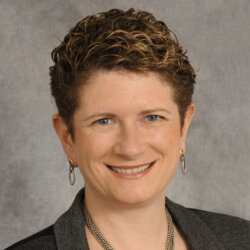I ♡ Trademarks Conference 2025Pride Overcoming Prejudice: Charting LGBTQ+ Paths in IP
Alt Legal Team | February 04, 2025
At the Alt Legal I ♡ Trademarks Conference, Michael Goodyear (NYU Law) moderated a discussion with Adraea Brown (Harley-Davidson), DJ Healey (Spencer Fane), and Nancy Mertzel (Mertzel Law) on the evolving landscape of LGBTQ+ representation in IP, “Pride Overcoming Prejudice: Charting LGBTQ+ Paths in IP.” Download the presentation materials here. Here are some key takeaways from the session:
- Sophia (on behalf of Nancy Mertzel) – Sophia provided an overview of key LGTBQ+ IP creators including: Oscar Wilde, Alan Turing, Alan Hart, and Gertrude Stein.
- Sophia (on behalf of Nancy Mertzel) – There has been an increase in representation of LGBTQ+ people in the media starting with LA Law in 1991, Ellen DeGeneres, Will & Grace, Queer Eye for the Straight Guy, RuPaul’s Drag Race, Transparent, among others.
- Michael – There has been an increase of LGBTQ+ representation in trademarks. Section 2 of the Lanham Act is relevant to LGBTQ+ community in that it prohibits immoral or scandalous marks and disparaging marks. The purposes of Section 2 is to keep the trademark registry clean and protect American laws. But the issue is that these terms that constitute immoral, scandalous, or disparaging marks are subjective standards and rules have been applied inconsistently. Each examiner will bring their own mores and perspectives. For example, in 2005, the USPTO refused to register GOD IS GAY, saying it contained immoral or scandalous matter. The Examiner concluded that religious Christians view homosexuality as sinful. In contrast, the mark DYKES ON BIKES was originally non-registrable as DYKE was considered disparaging towards women, but after years of litigation and appeals the word mark was registered. These marks have symbolic value to the LGBTQ+ community.
- Michael – After SCOTUS cases Tam (2017 – SLANTS allowed to register, whereby the applicant reappropriated a hateful term) and Brunetti (2019 – FUCT for a clothing brand allowed to register, SCOTUS holding that the immoral/scandalous standard is unconstitutional) there was concern that these cases would open the floodgates for all the worst words to enter the trademark register including racist, homophobic and misogynistic marks.
- Michael – There are 11 identified LGBTQ+ slurs and there have been 144 USPTO trademark applications incorporating these terms in a 9 year period pre and post-Tam. The number of applications increased post-Tam. 114 were bona fide reappropriation attempts. Overall, despite what might have been expected, there was not an influx of disparaging marks post-Tam and Brunetti.
- Michael – The reason why there was not an increase of disparaging marks post-Tam and Brunetti is likely due to: (1) an increase in LGBTQ+ rights and acceptance in the US, thusan increase in representation; (2) there is a historical precedent that following a legal battle there is often an increase in representation; (3) historically, there have been a lot of racially-based disparaging marks (ex. AUNT JEMIMA, LAND-O-LAKES) but there hasn’t been a history of disparaging LGBTQ+ marks; (4) failure to function refusals make it difficult for applicants to get a trademark if they are just being hateful – they need to be using the mark as a source identifier; (5) there is limited commercial appeal for hateful marks.
- Michael – In 1978, Gilbert Baker designed the rainbow pride flag. The Gay Community Center in San Francisco tried to register the flag as a trademark but Baker fought back. We should be cautious of over-commercialization of LGBTQ+ terms and culture and think about terms of what we want to exempt from registration and how we want to enforce them.
- Adraea – In the workplace, inclusive policies don’t need to be LGBTQ+-specific. They should be inclusive of everyone so that everyone feels welcome to be themselves at work.
- Adraea – Organizations should have employee resource groups (ERGs.) Though they’re under scrutiny, ERGs can be based under a common theme like women, LGBTQ+, Black people, etc. Make sure that ERGs are open to all and that everyone is welcome to join. ERGs can be safe spaces for advocacy, networking and sense of community so that everyone can feel part of the organization.
- Adraea – Organizations should provide training and education on belonging and anti-discrimination, pointing out things you shouldn’t be doing that you might not even be aware of. These types of open discussions are helpful for people to understand what others are going through.
- Adraea – Celebrate diversity. If your organization allows it, you can celebrate Pride Month, for example.
- Adraea – Ensure recruitment processes are inclusive and include gender-neutral wording. Also, be intentional about seeking applicants from diverse pools. Don’t keep posting your listings in the same places – try other places to recruit more diverse candidates.
- Adraea – Encourage open dialogue and foster an environment where employees feel comfortable discussing all issues. Employees should be able to explain that they are having a rough time, or feel comfortable discussing the issues that they’re thinking about. You want all employees to have the feeling that they can be open and discuss what is happening in their lives, feeling supported and that they belong.
Speakers
Michael Goodyear , Assistant Professor, NYU Law (Moderator)
, Assistant Professor, NYU Law (Moderator)
Michael Goodyear is an Acting Assistant Professor at the New York University School of Law and a Fellow at NYU Law’s Engelberg Center on Innovation Law & Policy. Michael’s research analyzes how copyright and trademark law can facilitate expression. He examines the potential of intellectual property law to spark and stymie technological and cultural change, including generative AI, deepfakes, and blockchain. He also studies how intellectual property law can empower historically underrepresented populations, especially the LGBTQ+ community. His work has been published or is forthcoming in over a dozen journals, including his article “Queer Trademarks,” which was published last year in the University of Illinois Law Review.
Adraea Brown , Assistant General Counsel – Trademarks, Harley-Davidson
, Assistant General Counsel – Trademarks, Harley-Davidson
Adraea M. Brown assistant general counsel – trademarks and apparel at Harley-Davidson and leads the Company’s in-house trademark team. In her role, Adraea oversees the Company’s 5,000+ global trademark portfolio, brand protection and enforcement, and trademark litigation. Adraea also provides legal support and counsel to the Company’s multi-million-dollar apparel and licensing business. Adraea joined Harley-Davidson in 2015 and before then, she spent time as an attorney at a boutique trademark and copyright law firm in Hillsborough, New Jersey. Additionally, Adraea is a member of the Board of Directors for the International Trademark Association and the Harley-Davidson Foundation. She is also a former member and chair of the USPTO’s Trademark Public Advisory Committee. Adraea earned her Juris Doctor from the University of New Hampshire Franklin Pierce School of Law and her Bachelor of Arts degree from Spelman College.
DJ Healey , Partner, Spencer Fane
, Partner, Spencer Fane
Danielle “DJ” Healey has been recognized by Chambers Global, Chambers U.S., Best Lawyers in America, IAM, and Super Lawyers as one of the preeminent intellectual property litigators in the U.S. She has over 30 years of experience in planning and executing enforcement strategies and counter-strategies in Federal and State Courts, the ITC, the FTC, European Courts, and the European Commission. DJ has put together lawsuits for plaintiffs to enforce their patents, protect their trade secrets, defend their copyrights, and to deal with overreaching by others through antitrust and other business torts. She has worked with defendants to efficiently and effectively navigate their intellectual property and related antitrust problems, in some cases saving her clients billions of dollars.
Nancy Mertzel , Managing Partner, Mertzel Law
, Managing Partner, Mertzel Law
Nancy Mertzel has more than 25 years of experience protecting brand names, products, content and technology. Nancy’s broad litigation experience includes numerous copyright, trademark, trade dress, unfair competition and trade secret disputes. She regularly litigates matters involving source code and technology, and has successfully handled cutting edge cases involving the scope of copyright protection in source code and data. For example, on behalf of a leading bank and big box retailer, she successfully defeated a claim of copyright in numbers. She also handles trademark infringement cases, “failed systems” disputes between developers and licensees, trade secret cases involving software, entertainment industry disputes, and recovery of domain names. On the transactional side, Nancy handles trademark clearance, prosecution and portfolio management, and drafts a wide variety of agreements including copyright and trademark licenses, software licenses and software development agreements. She also advises clients on copyright issues including the scope of protection in data, fair use and infringement.